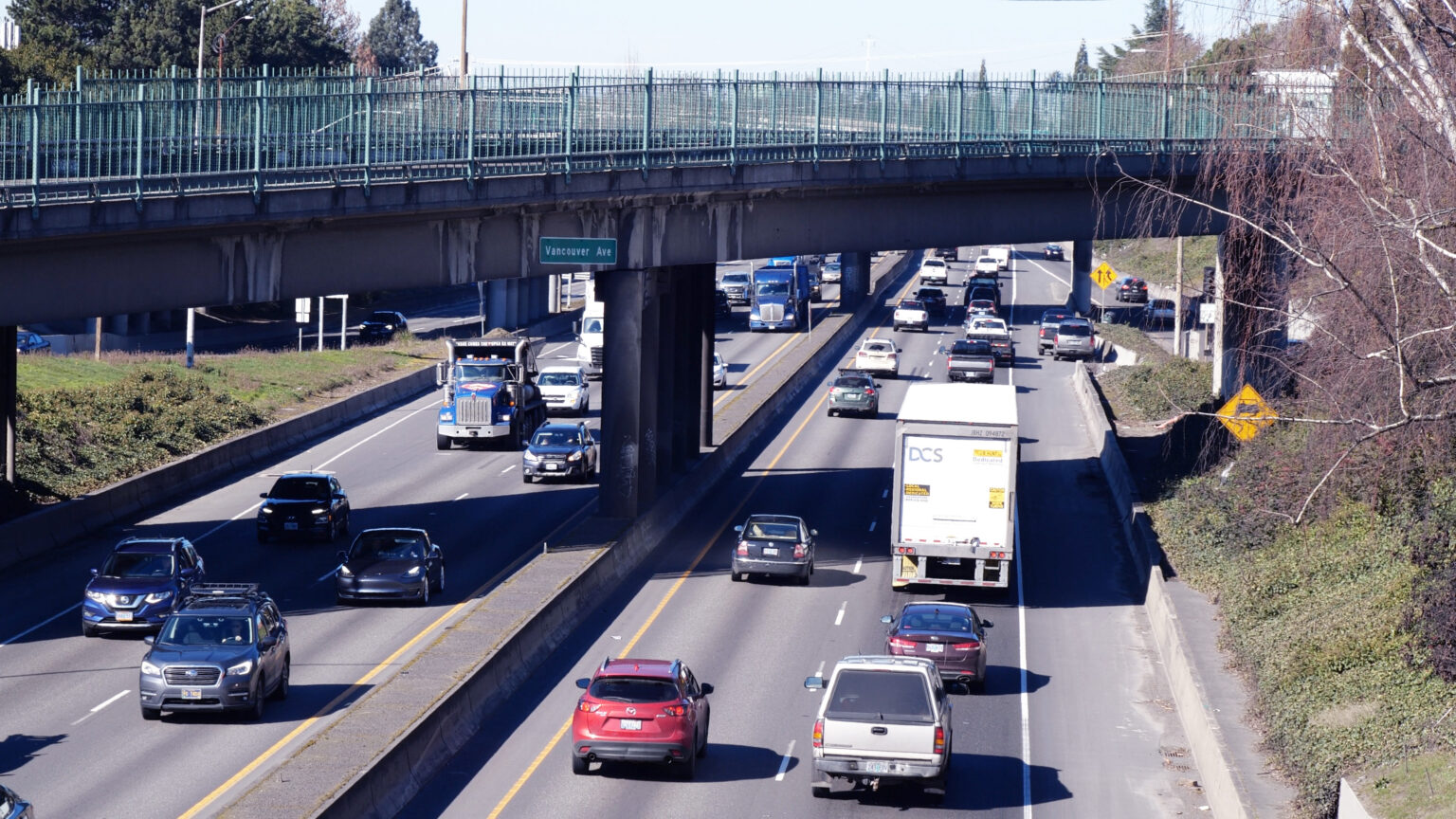Capital Chatter: Oregon politicians leave mark
Published 4:00 pm Thursday, October 8, 2020

- Capital Chatter square logo
Jim Weaver and Bob Smith will go down in Oregon history as having served our state in Congress. Neither leaves much of a national legacy, despite the plaudits expressed in their recent obituaries.
This week, I talked with politics professor Jim Moore of Pacific University to get his perspective on the two.
“Both of them are just going to be footnotes in history. There’s nothing really giant attached to them,” he said.
One of the lessons, oft-repeated in Oregon politics, is that someone who is a big fish here becomes a very little fish in Washington, D.C. Gaining expertise, seniority and influence in Congress takes a long time. Moore said that only recently has longtime Oregon Sen. Ron Wyden gained that power, as has Rep. Peter DeFazio, a former Weaver aide who succeeded him in Congress.
Politicians are elected on personality. Weaver was an independent millionaire who was going to dedicate his life to public service and who became an environmental champion. A rancher, Smith befit the cowboy hat he wore, epitomizing the natural resource industries and outdoors ethic of Eastern, Central and Southern Oregon.
Weaver, a Eugene Democrat who died Tuesday at age 93, opposed the Vietnam War, fought nuclear power and supported the environment while representing the 4th Congressional District during 1975-87.
In a blog post three years ago, long-time environmentalist Andy Kerr wrote, “Weaver has been the greatest wilderness advocate to represent Oregon in the U.S. House of Representatives so far.”
But, said political scientist Moore, “For all that Jim Weaver did about the environment, (Sen.) Mark Hatfield and Opal Creek is going to far outshine that.”
In 1980, Weaver “filibustered” against the Northwest Power Act by introducing 113 amendments, so that he could speak for hours on the U.S. House floor. House rules, which did not permit filibusters, subsequently were tightened to ban Weaver’s tactic.
The bill passed, but Weaver proudly made his point. In the process, he lost the trust of the Democratic leadership and his House colleagues, curbing his future effectiveness, according to Moore.
Republican Smith, who died Sept. 21 at age 89 in Medford, preceded Rep. Greg Walden in the 2nd Congressional District. Moore said Smith’s legacy is one of speaking up for rural values, rural trades and rural economies.
Moore called Smith “a person of his time.” He served as speaker of the Oregon House during 1969-1973, when Republicans held firm control of the Legislature as Democrats do currently. He could be crusty but carried a twinkle in his eyes.
Conservative Smith, who had to deal with liberal Republican Gov. Tom McCall, personally opposed what would become Oregon’s landmark Bottle Bill in 1971.
But Smith saw the writing on the wall. Richard Chambers, a logging equipment salesman and the father of later Republican Rep. Vicki Berger of Salem, had come up with the concept for the container deposit mandate. He contacted Republican Rep. Paul Hanneman. McCall belatedly came aboard.
Smith was “a process guy,” according to Moore, and despite his dislike for the Bottle Bill, allowed it to proceed by putting Hanneman in charge of crafting the legislation. Later as a member of Congress, Smith hired staffers regardless of political affiliation who knew his sprawling district, one of the nation’s largest.
“That says loads about him to me,” Moore said. “He was a person who knew that he couldn’t do everything; he couldn’t understand everything. He wanted this input.”
Smith represented the 2nd District during 1983-1995 and, following Wes Cooley’s ignominious tenure, returned for one term in 1997-1999 and chaired the House Agriculture Committee. The federal government has tremendous impact on all things agriculture, which, as Moore recounted, led Smith to tell his wife, “This boy from Burns is going to have to learn a lot about avocados.”
This year in politics: Moore is fascinated by Oregon’s quiet election campaigns this fall, though pandemic restrictions have caused legislative races to air more television ads.
He sees an usually large number of competitive legislative races — six in the House and two to three in the Senate — and that could alter the power dynamics. The Democrats could gain more seats or more likely, he said, lose their supermajority.
“It’s been a long time since we’ve seen anything except kind of the steady, incremental increase of Democratic power in the Legislature,” he said.
Since the early 1950s, neither party has had more than 38 seats in the 60-member House, Moore said. Back then, it was the Republicans; now the Democrats.
The plot thickens: On Friday, my Capital Chatter column disclosed the Legislature’s behind-the-scenes COVID-19 preparations for the 2021 session, including a rumor that the session might get delayed. Rank-and-file legislators and others have been asking what’s up.
On Monday, the Legislative Administration released an overview of the planning process, which includes key legislative staff.
A bit later, Sen. Lee Beyer, D-Springfield, sent a 400-word memo to his colleagues advocating for delaying the 2021 session “until the virus is more under control.”
On Tuesday, Gov. Kate Brown agreed that a delay should be considered. She said had talked with legislators and others about that prospect, though not directly with House Speaker Tina Kotek or Senate President Peter Courtney.
In his email to fellow senators, Beyer had written: “We now know what it looks like to run a session after the two special sessions and many E-Boards. It’s not pretty and most importantly does not allow adequate public access to the process. …
“I have come to the conclusion that it will not be possible to conduct a regular session in the current environment. I don’t like the idea of walking through full hallways of people or sitting in full committee rooms with limited ventilation. And, I don’t like the idea of the routine continuous 15 minute meetings with people in my office when not in committee or session. Further, I don’t think it is appropriate that the public not have access to their representatives while policy is being made.”
The 2021 Legislature is scheduled to convene Jan. 19. Altering that date would require the Legislature to pass a law, which presumably could be done in a special session. As Beyer noted, that change would require a simple majority vote in both chambers.
Brown has she would call another special session, the year’s third, sometime after the Nov. 3 general election.
Setting the record straight: In last week’s column, I reported the session dates listed on the Legislature’s 2021 calendar — Feb. 1 to July 11. Those dates were wrong, and have subsequently been corrected by legislative staff to Jan. 19 to June 28.
Unless the Legislature changes them.
“Our Oregon families are hurting in communities across the state. We’ve lost thousands of homes, and I know that we are all feeling extremely concerned and want to make sure that we get folks into shelter or appropriate housing before the rains begin.”
— Gov. Kate Brown
Rebuilding communities and replacing infrastructure will take years.





